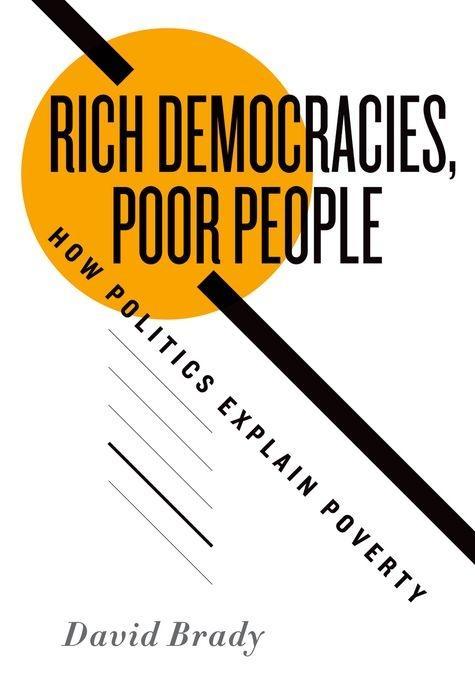
Zustellung: Mo, 21.07. - Do, 24.07.
Versand in 5 Tagen
VersandkostenfreiBestellen & in Filiale abholen:
This book highlights that among affluent Western societies, there is immense cross-national and historical variation in poverty, and seeks to determine what makes poverty so entrenched in some affluent democracies when it is a solvable problem in others. Brady points out that where poverty is low, equality has been institutionalized, and that where poverty is widespread, there has been a failure to institutionalize equality. This book effectively tackles the issueof how this collective responsibility is conceived and institutionalized, by defining the mechanisms that shape this ideology, or prevent it from coming into being, thus taking a broad new approach towards eliminating poverty.
Inhaltsverzeichnis
- 1.: Beyond Individualism
- 2.: Rethinking the Measurement of Poverty
- 3.: Mythical and Real Patterns in Poverty
- 4.: The Welfare State and Poverty
- 5.: The Politics of Poverty
- 6.: The Poverty of Liberal Economics
- 7.: Structural Theory and Poverty
- 8.: Politicizing Poverty
- Appendix
- Acknowledgements
- References
Produktdetails
Erscheinungsdatum
01. August 2009
Sprache
englisch
Seitenanzahl
278
Autor/Autorin
David Brady
Verlag/Hersteller
Produktart
kartoniert
Gewicht
427 g
Größe (L/B/H)
234/156/15 mm
ISBN
9780195385915
Entdecken Sie mehr
Pressestimmen
an ambitious, impressively well-argued and long-overdue contribution to the poverty debate. Fiona Taylor, The Times Higher Education Supplement
Bewertungen
0 Bewertungen
Es wurden noch keine Bewertungen abgegeben. Schreiben Sie die erste Bewertung zu "Rich Democracies, Poor People" und helfen Sie damit anderen bei der Kaufentscheidung.









